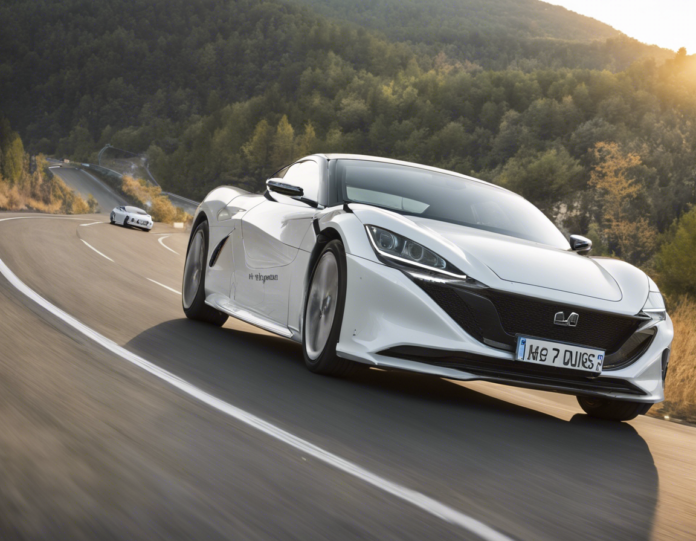As the world becomes increasingly conscious of the impact of carbon emissions on the environment, the popularity of fuel-efficient cars has surged. Not only do fuel-efficient cars help reduce greenhouse gas emissions, but they also make a positive impact on your wallet by decreasing fuel costs. From hybrid electric vehicles (HEVs) to plug-in hybrid electric vehicles (PHEVs) to fully electric vehicles (EVs), the options available for consumers looking to maximize mileage are diverse. In this article, we will explore some of the top fuel-efficient cars currently on the market that provide exceptional mileage without compromising on performance or style.
Benefits of Fuel-Efficient Cars
Before diving into the list of top fuel-efficient cars, let’s first understand the myriad benefits of owning one:
1. Environmental Impact
Fuel-efficient cars consume less fuel, which means they emit fewer harmful pollutants into the atmosphere. This, in turn, helps reduce air pollution and mitigate the effects of climate change.
2. Cost Savings
With fuel prices continuously fluctuating, owning a fuel-efficient car can result in substantial cost savings over time. These savings can be significant, especially for individuals who have long daily commutes.
3. Energy Security
Reducing our dependence on fossil fuels through the use of fuel-efficient cars enhances energy security and helps in diversifying our energy sources.
4. Performance and Technology
Advancements in automotive technology have made fuel-efficient cars highly efficient and technologically advanced. Many of these vehicles offer excellent performance alongside their impressive mileage.
Top Fuel-Efficient Cars for Maximum Mileage
Now, let’s take a closer look at some of the top fuel-efficient cars available in the market today:
1. Toyota Prius
The Toyota Prius has long been synonymous with fuel efficiency and eco-friendliness. As one of the first mass-produced hybrid vehicles, the Prius continues to lead the way with its exceptional mileage and comfortable ride.
2. Tesla Model 3
For those looking to go all-electric, the Tesla Model 3 offers impressive range and performance. With zero tailpipe emissions and cutting-edge technology, the Model 3 is a top choice for eco-conscious drivers.
3. Hyundai Ioniq
The Hyundai Ioniq is available in hybrid, plug-in hybrid, and all-electric versions, catering to a wide range of preferences. Its sleek design and stellar fuel efficiency make it a popular option in the market.
4. Chevrolet Bolt EV
As one of the more affordable all-electric vehicles on the market, the Chevrolet Bolt EV delivers excellent mileage and ample interior space. It’s a practical choice for those looking to make the switch to electric driving.
5. Honda Insight
The Honda Insight combines fuel efficiency with a stylish design and a comfortable interior. Its hybrid powertrain ensures impressive mileage without sacrificing performance.
6. Nissan Leaf
Another popular electric vehicle, the Nissan Leaf, offers a comfortable ride, spacious cabin, and commendable range. It’s a versatile choice for daily commutes and city driving.
7. Kia Niro
Available as a hybrid, plug-in hybrid, or all-electric model, the Kia Niro is a crossover SUV that delivers excellent fuel efficiency across its lineup. It offers a blend of practicality and eco-friendliness.
8. Ford Fusion Energi
The Ford Fusion Energi is a plug-in hybrid that combines the benefits of electric driving with the convenience of a gasoline engine for longer trips. It offers stylish looks and impressive mileage.
9. BMW i3
For those looking for a more premium electric driving experience, the BMW i3 delivers both style and substance. Its unique design and strong performance make it a standout in the electric vehicle market.
10. Lexus UX 250h
The Lexus UX 250h is a luxury hybrid SUV that combines fuel efficiency with upscale features and a refined driving experience. It’s a top choice for those seeking a blend of efficiency and luxury.
Frequently Asked Questions (FAQs)
1. Are fuel-efficient cars more expensive to purchase?
Fuel-efficient cars often come at a premium compared to traditional vehicles, primarily due to the advanced technology and materials used in their construction. However, the cost savings from reduced fuel consumption over time can offset the initial higher purchase price.
2. What is the difference between hybrid and electric vehicles?
Hybrid vehicles use a combination of an internal combustion engine and an electric motor to improve fuel efficiency, while electric vehicles run solely on electric power stored in a battery. Hybrids do not need to be plugged in to charge, whereas electric vehicles require regular charging.
3. How far can electric vehicles travel on a single charge?
The range of electric vehicles varies depending on the model and battery capacity. Most modern electric vehicles offer ranges between 200-300 miles on a single charge, with some premium models exceeding 300 miles.
4. Is it cheaper to own an electric vehicle compared to a gasoline car?
While the upfront cost of electric vehicles can be higher, the operational costs are generally lower due to the lower cost of electricity compared to gasoline. Additionally, electric vehicles require less maintenance, resulting in long-term cost savings.
5. Can I charge an electric vehicle at home?
Yes, most electric vehicles come with a standard charging cable that can be used with a regular household outlet. However, for faster charging times, you may opt to install a Level 2 home charging station, which can charge the vehicle much quicker.
6. Are there government incentives for purchasing fuel-efficient cars?
Many governments around the world offer incentives for purchasing fuel-efficient cars, such as tax credits, rebates, and special access to carpool lanes. These incentives can help offset the initial higher cost of fuel-efficient vehicles.
7. How does driving style affect fuel efficiency?
Driving style plays a significant role in fuel efficiency. Avoiding aggressive acceleration and braking, maintaining a steady speed, and keeping tires properly inflated can all contribute to better mileage in any vehicle, fuel-efficient or not.
8. Can I tow a trailer with a fuel-efficient car?
While some fuel-efficient cars are capable of towing light trailers, it’s essential to check the manufacturer’s specifications before attempting to tow. Towing can significantly impact the mileage of the vehicle and may void the warranty if done improperly.
9. Do fuel-efficient cars require special maintenance?
Fuel-efficient cars generally require the same maintenance as traditional vehicles. However, electric vehicles have fewer moving parts, which can lead to lower maintenance costs over time. It’s essential to follow the manufacturer’s maintenance schedule for optimal performance.
10. Can I take a fuel-efficient car on long road trips?
Fuel-efficient cars, especially electric vehicles with long ranges, are suitable for long road trips. With the growing network of charging stations worldwide, it has become increasingly convenient to travel long distances in electric vehicles. Proper planning and knowledge of charging locations are crucial for a successful road trip.
In conclusion, investing in a fuel-efficient car not only benefits the environment but also offers long-term cost savings and a technologically advanced driving experience. With a wide range of options available on the market, consumers can choose a vehicle that best suits their needs and lifestyle while reducing their carbon footprint. Whether you opt for a hybrid, plug-in hybrid, or electric vehicle, the future of driving is undeniably focused on efficiency and sustainability.












